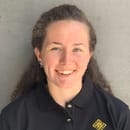Adapting to college is hard. Whether you have a week-long orientation leading up to the start of classes or you’re just thrown into it cold turkey, the transition is neither easy nor natural. Although there is no foolproof way to guarantee a perfect start to your first semester, there are some major keys to making it a successful one. So, from the experience of a burnt-out gifted kid and introvert, here are five ways to make the most of your first semester at college.
- Be open to meeting new people
-
Yes, this can be hard. Being extroverted is not a natural skill for everyone, but it is something that we can all learn for short periods of time. From one introvert to maybe another, it is possible to branch out. This does not look the same for everyone, and that is very important to remember. For some people, this may just be walking up to someone and asking “Hi, I’m __, what’s your name?” while for some of us it may be sitting in a common space and waiting for it to come naturally. Regardless, it is important to be open to meeting new people. Even when you’ve met a few people and think “Wow, these are my people,” do not let this stop you from meeting more people!
- Spend time exploring your area
-
Whether you are in a big city or a college town, there is something to do within proximity of your campus that is not your campus. By getting off-campus and getting to know the surrounding area, not only will you get to know more places, but you may even meet more people for a completely different change of pace.
- Join organizations that you are genuinely interested in
-
Most schools have their beloved fair of sorts that is a time for all on-campus student organizations to show themselves and try to get as many new students to join as possible. Although, at these fairs, it may seem tempting and possible to join five, ten or more organizations, stick to your gut and choose the ones that you have a genuine interest in. Joining ten organizations and attending ten different bi-weekly meetings is not the way to grow and make the most of your experience. Instead, choosing around three organizations gives you the opportunity to be a genuinely involved member and provides a more likely opportunity for leadership within one or more of the organizations.
- Meet people on your floor and beyond
-
Although sticking to meeting people on your floor sounds restrictive to some, it is a very valuable way to get to know people nearby that may be able to help you out, hang for a bit, or just enjoy some quick downtime. It is also important to have friends around campus because it gives you a varied experience and a getaway when you need one, be it merely from your roommate or from your building as a whole. Having friends all around is an important part of having a good experience, so be sure to meet people from far and wide.
- Build relationships with your professors
-
To some, this may sound easier said than done. However, by merely introducing yourself to your Professor after class, or even better, going to their office hours within the first two weeks of classes, they will get to know you better and no longer see you like just another face. Depending on the Professor, this may be a useful letter of reference, later on, they may be more flexible with rounding up a grade, or someone who can give you invaluable advice. There is nothing harmful about building a meaningful relationship with your Professors, they provide so much to gain.
The most fruitful experiences come when you are outside of your comfort zone. So long as you are in a safe environment, it is always worthwhile to explore a little further, dig a little deeper, and meet some more people. Life is what you make of it, and your college experience is going to be fantastic!


